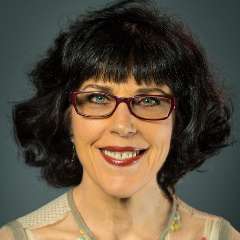The modus operandi of “SONIC: Sounds of a New Century”, one of the eight programs of the American Composers Orchestra (ACO) in New York, is to showcase new works by composers under the age of 40. Held from 15-23 October, SONIC programmed works by over 80 young composers, presenting their works in 11 venues in Manhattan and Brooklyn. Perhaps because of the age factor, fusty academic formalities were replaced by exceptionally informal and socially engaging presentations that reflect this generation’s casual, mix-it-up style.
After hearing nine world premières within the festival’s 12 concerts (13 were originally scheduled but one was cancelled because of visa issues), I can attest to the fact that there’s a lot of exciting young genius out there. Several scores have “got legs”, as New Yorkers say, but the most impressive aspect was hearing truly original new voices.
Over the course of nine days, works from soloist to large orchestra were heard in spaces both intimate and oversized. While almost all were compelling in their own right, I’ll concentrate on the first of two concerts on 20 October in downtown Brooklyn’s Roulette theatre/ballroom/art space that specializes in alternative fare. The six composers heard then revealed more originality per capita than the other concert experiences.
That evening’s first program was under the proprietary rule of the 18-member Los Angeles ensemble wild Up under the energetic leadership of Christopher Rountree, who made their collective New York debut with works by Chris Kallmyer, Andrew McIntosh, Julia Holter, Andrew Tholl, Jen Hill, and Nick Deyoe. Two short pieces were the group’s own extraterrestrial take on tunes by West Coast punk bands Fear and Misfits.
The concert opened with strings miming the act of bowing, while actors pushed tumbleweeds down the auditorium’s aisles, Rountree whistled into a microphone, and the ensemble rang cowbells before breaking into a group free-for-all of “NY’s alright if you like saxophones,” begun by raucous squeals from baritone sax player Brian Walsh. Rountree spoke frequently from the stage, explaining things like “why did we choose the West?” (referring to California) to live and work: “It’s space, basically, but weirdness too.” The weirdness factor was already evident from the start, and what followed was more of it, followed by sheer wonder at what’s in the water out west.
Kallmyer’s “this nest, swift passerine” channeled Messiaen with lush bird sounds set in a jungle-like texture while other instruments kept a limpid ambience below the avian activity.
Tholl’s “corpus callosum” (referring to the region between the two hemispheres of the brain) was a stylistic mashup of almost every genre, including free improvisation. While full of textural novelties and jazz-flavored surprises, spiked with an intriguing piano part, he tended to rely on effects more often than not. His “Three Meditations on California Girls” (referring to the Beach Boys’ pop song) was more succinct and cleverly wrought; its passacaglia-style intro with pizzicato basses was a tip of the hat to the Boys’ original accompaniment. He followed with a long meander through C major; whether this was meant as satirical or not is anybody’s guess, but the third section’s quotation of the tune in an inventive setting succeeded for its simplicity and effect-free conceit.
Hill’s “In Memoriam My Liver” was a serenely hypnotic sequence of sustained pianissimo writing, with occasional outbursts that felt like weather squalls. Lots of breathing space within gave the listener a general calm, which was capped by probably one of the longest sustained trumpet notes ever written – a muted high C, played memorably by Jonah Levy. This fact was made even more oddball by the score’s instruction for him to read poetry while he held the note.
Deyoe’s “A New Anxiety” delivered on its title: it was one of the most terrifying pieces I’ve ever heard. Special effects, via special electronic hookups and foot pedals, entrusted to bassoonist Archie Carey contributed to a sonic portrait of the end of the world.
But McIntosh’s “Yelling Into the Wind” broke the sound barrier – in terms of going beyond what we have known – for coming up with a new tonal language for a magical work in which every moment is fascinating. Its gorgeous, shape-shifting panes of color and light create a psychologically potent yet exquisitely balanced work of art. wild Up’s beautifully nuanced performance, which featured Richard Valitutto as solo pianist, deserves lavish accolades - as does this astounding opus.
The Fromm Foundation, which is based at Harvard University, was a major and particularly significant sponsor for SONIC festival. Since its founding in mid-20th century, it has supported living American composers with grants, commissions, and archival services. The award-winning ACO has been a leader in New York’s contemporary music scene since 1977.


